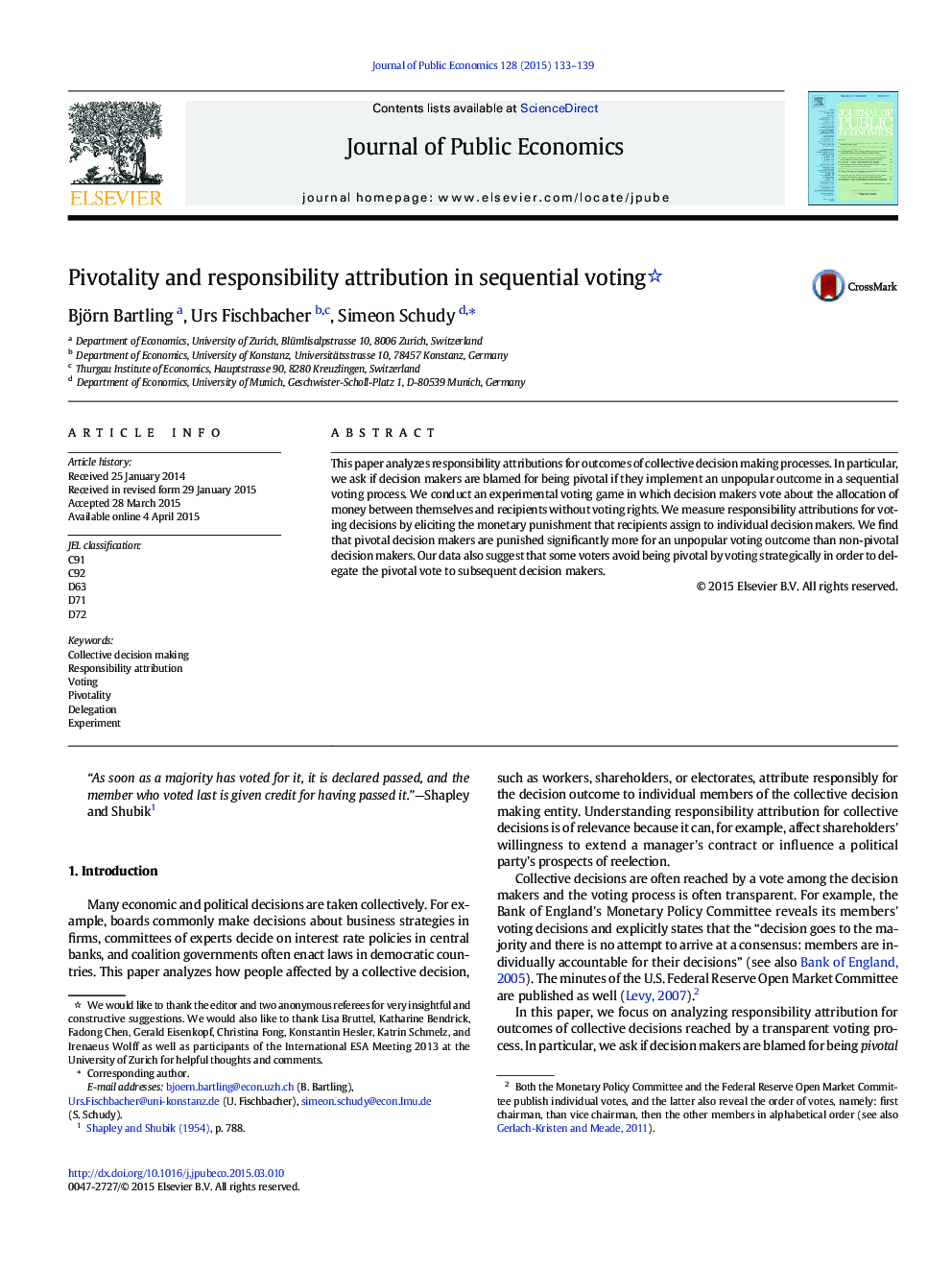| Article ID | Journal | Published Year | Pages | File Type |
|---|---|---|---|---|
| 969658 | Journal of Public Economics | 2015 | 7 Pages |
•We study how pivotality affects responsibility attribution in sequential voting.•Responsibility attribution is measured as costly second-party punishment for voters.•Pivotal voters are blamed more for an unpopular outcome than non-pivotal voters.•Some voters cast their votes strategically in order to delegate the pivotal choice.
This paper analyzes responsibility attributions for outcomes of collective decision making processes. In particular, we ask if decision makers are blamed for being pivotal if they implement an unpopular outcome in a sequential voting process. We conduct an experimental voting game in which decision makers vote about the allocation of money between themselves and recipients without voting rights. We measure responsibility attributions for voting decisions by eliciting the monetary punishment that recipients assign to individual decision makers. We find that pivotal decision makers are punished significantly more for an unpopular voting outcome than non-pivotal decision makers. Our data also suggest that some voters avoid being pivotal by voting strategically in order to delegate the pivotal vote to subsequent decision makers.
